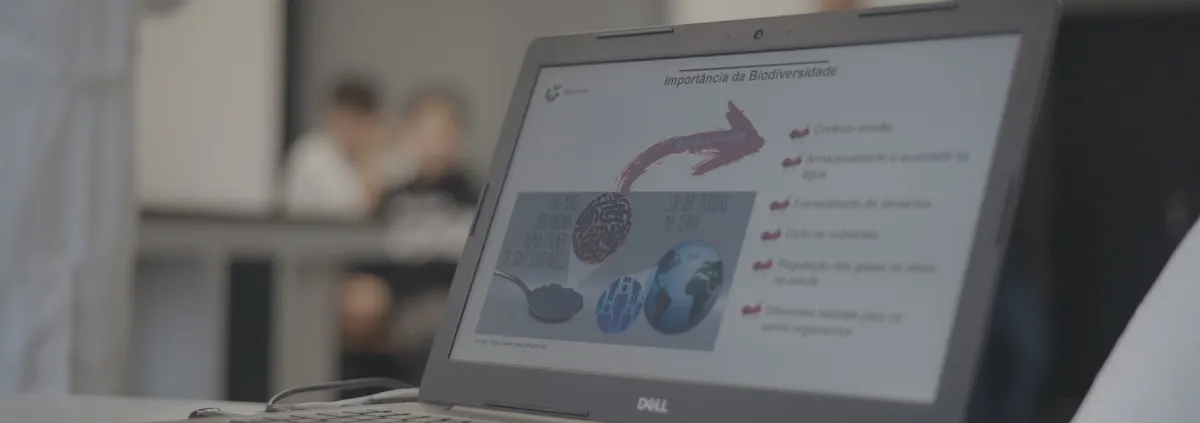Laboratório da Paisagem is an entity that promotes the sustainable development of the territory, focused on innovation, research and scientific dissemination, raising awareness of the population, and providing environmental services and consultancy. It was founded in 2014 by Guimarães’ City Council (Portugal) and two of the main universities of the northern region, the University of Minho and the University of Trás-os-Montes e Alto Douro.
We are an Environmental Research and Education centre that acts in the territory, covering areas of intervention as diverse as climate, biodiversity, green areas and land use, water resources, circular economy, health and quality of life, and environmental education.
We are also a laboratory of ideas. We create communication campaigns to educate, raise awareness and inform the population about sustainable development and its positive impacts. The training activities organised by Laboratório da Paisagem provide citizens and technicians with greater environmental scientific knowledge so that they too can become agents of change.
Regarding this, we created a project to tackle climate change issues addressed specifically in schools, to raise awareness in students and teachers about the issues of our behaviour towards environment, leading to the consequences that climate change is creating in the present, and also to give them green skills and competences so that they become vectores of information dissemination, and in the future transform into better adults.
This project had his learning scenario integrating climate education across energy efficiency, water circularity, sustainable food, waste production, circular economy and mobility, highlighting their interconnectivity. By adopting a participatory bottom-up approach, students are central to the process aligning with Guimarães’ ambition to achieve climate neutrality by 2030 under the EU Cities Mission. Students actively contributed to creating action plans for environmental challenges: conducting energy audits to reduce consumption, developing water-saving strategies, exploring sustainable food practices, reducing biowaste and exploring circular economy, and promoting sustainable mobility options that ensure accessibility. To date we have conducted over 171 sessions involving 815 students across the multiple climate neutrality building blocks.


Please log in or sign up to comment.